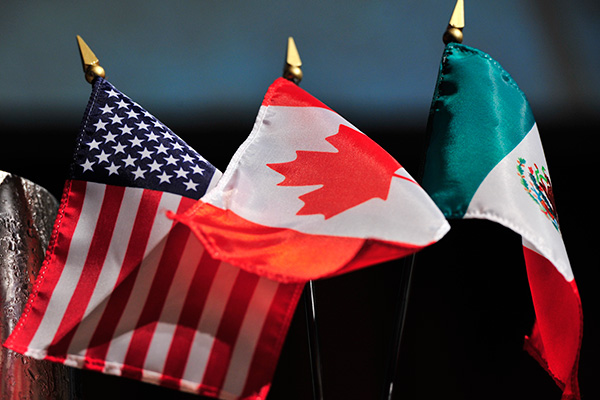JPAC Advice on Air Quality for Environmental Justice
Joint Public Advisory Committee (JPAC) submits Advice to the CEC Council of North America’s following public consultation on new CEC Air Quality for Environmental Justice project.
The CEC Joint Public Advisory Committee (JPAC) has just submitted an Advice to the CEC Council regarding a new large-scale project addressing the need for additional air monitoring of black carbon/particulates through collaborative, cost-effective approaches, especially in communities with disproportionate public health and environmental harm or risk, including those with environmental justice concerns, which may include Indigenous communities.
The Advice stemmed from a public consultation on the proposed project that took place from 28 April to 19 May 2022, during which JPAC received a wide range of feedback from the public, from identifying existing gaps in current air quality monitoring to the need for increasing data availability and transparency within the three countries.
The public consultation highlighted:
- The complexity of air quality issues in North America, with particularities by country and sector, and in urban and rural environments;
- The existence of different proposals and the urgency to prioritize and jointly implement all relevant measures to take advantage of the synergies between them; and
- The importance of coordinated collaborations between different actors and sectors (i.e., government, academia, civil society, private sector) through effective mechanisms and with a regional vision.
In its Advice, JPAC recognized the participants’ concerns of the lack of clarity in the way communities will be chosen for this project and the importance of choosing the right communities to showcase best practices and concrete impacts.
In addition, JPAC agrees with public comments on the short project timeline and stresses the importance of properly engaging Indigenous and vulnerable communities, which might experience disproportionate environmental harm or risk and/or have environmental justice concerns, to develop relationships and allow for meaningful engagement.
Other concerns identified by the participants are the potential lack of capacity and resources in vulnerable and underserved communities, the importance of environmental education to help change behavior, and the importance of supporting existing efforts.
JPAC believes that the recommendations are relevant to the CEC Council’s
strategic priorities and is confident that the CEC will find them useful as it develops and implements this project and related ones in the future.
NOTE: The CEC Council is composed of Canada’s Minister of Environment and Climate Change, Steven Guilbeault, Mexico’s Secretary of the Environment and Natural Resources, María Luisa Albores González, and US Environmental Protection Agency Administrator Michael S. Regan.

About the CEC
The Commission for Environmental Cooperation (CEC) was established in 1994 by the governments of Canada, Mexico and the United States through the North American Agreement on Environmental Cooperation, a parallel environmental agreement to NAFTA. As of 2020, the CEC is recognized and maintained by the Environmental Cooperation Agreement, in parallel with the new Free Trade Agreement of North America. The CEC brings together a wide range of stakeholders, including the general public, Indigenous people, youth, nongovernmental organizations, academia, and the business sector, to seek solutions to protect North America’s shared environment while supporting sustainable development for the benefit of present and future generations
The CEC is governed and funded equally by the Government of Canada through Environment and Climate Change Canada, the Government of the United States of Mexico through the Secretaría de Medio Ambiente y Recursos Naturales, and the Government of the United States of America through the Environmental Protection Agency.